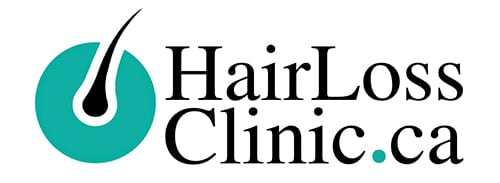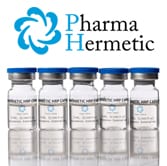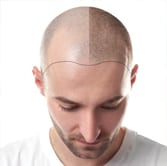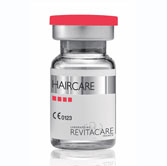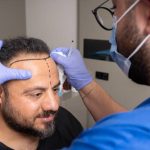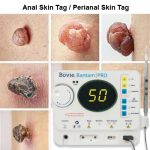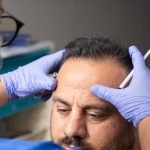
HIRSUTISM | CAUSE & TREATMENT | HAIR LOSS CLINIC TORONTO
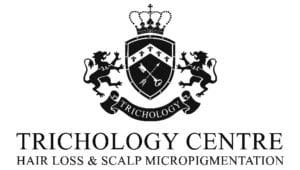
FREE ONLINE HAIR LOSS ASSESSMENT FORM
Are you experiencing any hair loss or scalp issues? Get a Certified Trichologist to assess and help treat your condition in Toronto and Greater Toronto Area. Please complete our online Trichology Assessment Form to get started now.
What is Hirsutism?
Hirsutism is a hormonal condition where women experiences abnormal hair growth on their face and body where there is normally no hair. It can be emotionally distressing for women with this condition.
Hirsutism can be caused by menopause related hormonal changes, higher levels of the male hormone androgen, primarily testosterone, disorders of the adrenal glands or ovaries.
Certain conditions run in families that can cause hirsutism, including polycystic ovary syndrome (PCOS) and adrenal hyperplasia.
In other cases, women with hirsutism may have normal levels of male hormones. Women in the Middle Eastern, South Asian and Mediterranean ancestry also are more prone to excessive facial and body hair with no identifiable cause than other women.
What are the Symptoms of Hirsutism?
The noticeable characteristic of hirsutism is the coarse dark hair on the face, chest and back where women don’t commonly have hair. When high levels of androgen cause hirsutism, other characteristics are seen. This process called virilization shows the following signs:
- Deepening voice
- Balding
- Increase muscle mass
- Decreased breast size
- Acne
- Enlargement of the clitoris
What Causes Hirsutism?
| Congenital Adrenal Hyperplasia | An inherited condition that is characterized by abnormal production of steroid hormones, including cortisol and androgen, by your adrenal glands. |
| Polycystic Ovary Syndrome (PCOS) | PCOS causes an imbalance of sex hormones. Over years, PCOS may slowly result in excess hair growth, obesity, irregular periods, infertility and sometimes multiple cysts on the ovaries. It often begins with puberty and continue into adulthood. |
| Cushing Syndrome | When your body is exposed to high levels of the hormone cortisol, hirsutism can develop. It can develop from your adrenal glands making too much cortisol or from taking medications such as prednisone over a long period. |
| Medications | Certain medications can cause hirsutism. These include minoxidil (Rogaine); testosterone (Androgel, Testim); danazol, which is used to treat women with endometriosis; and dehydroepiandrosterone (DHEA). |
| Tumors | A rare condition when an androgen-secreting tumor in the ovaries or adrenal glands can cause hirsutism. |
Medical Treatments for Hirsutism
Hirsutism is uncurable, however some medications and procedures can help with the condition.
| Oral Contraceptives | Birth control pills or other hormonal contraceptives, which contain estrogen and progestin, can treat hirsutism caused by androgen production. |
| Anti-androgens | If oral contraceptive aren’t effective for hirsutism, doctors can prescribe anti-androgens that block androgen from attaching to their receptors in the body. |
| Eflornithine (Vaniqa) | Eflornithine is a prescription cream used specifically for excessive facial hair in women. Used twice a day, it helps slow new hair growth but doesn’t remove existing hair. It is good in combination with laser treatments. Hairs will come back if you stop using it. |
Non-Medical Treatments for Hirsutism
- Being overweight may contribute to hirsutism.
- Cosmetic hair removal techniques include laser therapy. Laser therapy uses a beam of highly concentrated light to damage hair follicles and prevent hair from growing back. Multiple treatments are required to prevent hairs from growing back.
- Saw palmetto (Serenoa repens) has some anti-androgenic effects.
- Black cohosh (Actaea racemosa), is another herb with anti-androgenic effects.
- One small study of women with hirsutism found that acupuncture helped reduce both hair density and hair length. It also helped reduce levels of testosterone.
Q & A
What is hirsutism?
Hirsutism is characterized by excessive hair growth in women in areas where hair is typically minimal or absent, such as the face, chest, back, and abdomen. It is often caused by increased production or sensitivity to androgens, the male hormones.
What are the common symptoms of hirsutism?
The main symptom of hirsutism is the development of dark, coarse hair in the areas mentioned earlier. Other symptoms may include acne, irregular menstrual periods, and in some cases, male-pattern baldness.
What are the potential causes of hirsutism?
Hirsutism can be caused by various factors, including polycystic ovary syndrome (PCOS), hormonal imbalances, adrenal gland disorders, certain medications, and familial or genetic predisposition.
How is hirsutism diagnosed?
Diagnosing hirsutism typically involves a thorough medical history review, physical examination, and blood tests to assess hormone levels. Additional imaging tests may be performed to evaluate the ovaries or adrenal glands if an underlying condition is suspected.
Can hirsutism be treated?
Yes, there are various treatment options available for managing hirsutism. These include lifestyle modifications, such as weight loss and regular exercise, medications to regulate hormone levels, and cosmetic treatments like laser hair removal, electrolysis, or topical hair removal creams.
Is hirsutism a curable condition?
Hirsutism itself may not be curable, especially if genetic factors or certain medical conditions cause it. However, it is possible to manage and control excessive hair growth with appropriate treatment.
Can hirsutism affect a woman’s fertility?
Hirsutism does not directly affect fertility but can be associated with underlying conditions like PCOS, which may impact fertility. Proper diagnosis and management of these conditions can help improve reproductive health.
Are there any natural remedies or home treatments for hirsutism?
While natural remedies cannot cure hirsutism, some women may find relief by maintaining a healthy lifestyle, managing stress levels, and following a balanced diet. However, consulting with a healthcare professional to address the underlying causes and explore appropriate treatment options is important.
Does hirsutism have any emotional or psychological impact?
Yes, hirsutism can have a significant emotional and psychological impact on individuals, leading to lowered self-esteem, body image concerns, and anxiety. Support from healthcare professionals, counselling, and support groups can be beneficial in managing these aspects.
Can hirsutism recur after treatment?
Hirsutism can recur if the underlying causes, such as hormonal imbalances, are not adequately addressed. Long-term management may be required to control excessive hair growth effectively. Regular monitoring and adjustments to the treatment plan may be necessary to maintain results.

FIND A TRICHOLOGIST IN TORONTO GTA
With the numerous available treatments for hair loss our Trichologist can recommend the best treatment that can help with your condition. At the Trichology Centre, we have helped patients with all types of hair and scalp conditions, advising them the best treatments available and helping them regain their confidence and self-esteem. Early assessment and treatment from the onset of the hair and scalp condition is important and can help prevent the condition to worsen.
We have two clinics in the Toronto GTA,
TRICHOLOGY CENTRE | hairlossclinic.ca | hairtattoo.ca | laserhairtherapy.ca
600 Sherbourne St #605, Toronto
9140 Leslie St #301, Richmond Hill.
Please give us a call at 647-492-9093
ADDRESS
Toronto, 225 Wellesley St East #5
Richmond Hill, 9140 Leslie St #301
PHONE
(647) 492-9093
hairlossclinic.ca@gmail.com
WORKING HOURS
Mon-Sat 9:00 am - 8:00 pm
Sunday CLOSED
Comments are closed.
